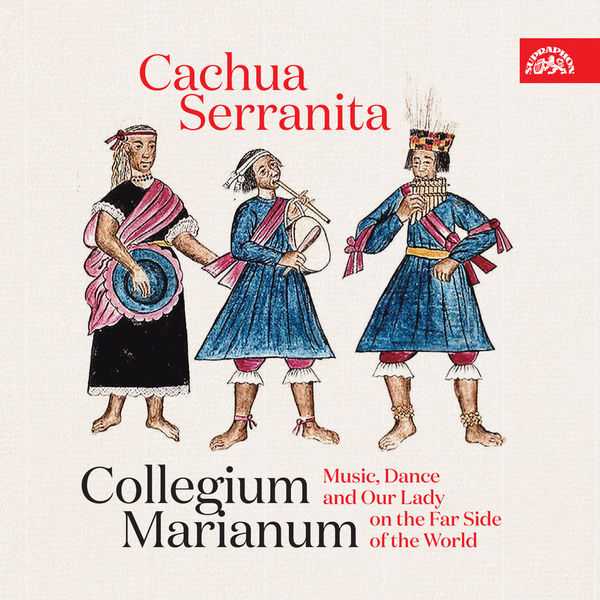

Composer: Kristián Gottfried Hirschmentzel, Georg Philipp Telemann, Jan Josef Ignác Bretner, Martin Schmid
Performer: Collegium Marianum, Jana Semeradova, Vojtěch Semerád
Format: FLAC (tracks)
Label: Supraphon
Catalogue: SU43092
Release: 2022
Size: 1 GB
Recovery: +3%
Scan: cover
01. anon.: Hanaq pachap cussicuinin
02. Hirschmentzel: Moravica and Bohemicus saltus
03. anon.: Šla panenka smutně
04. anon.: Aria Hannaco
05. Telemann: Hanaquoise
Bretner: Concerto da camera in D Minor
06. I. Allegro staccato
07. II. Largo
08. III. Menuet
09. anon.: Zuipaqui / Ad Mariam
10. Bretner: Bourrée & Capriccio
11. trad.: Vyletěla holuběnka ze skály
Schmid: Pastoreta Ychepe Flauta
12. I. –
13. II. Allegro
14. III. Adagio
15. IV. Allegro II
16. anon.: Taye jueves Santo
17. Telemann: Hanasky
18. anon.: Three Peruvian Folk Songs
19. trad.: Na Svatém Kopečku
20. trad.: Když jsem já šel na Svatý Kopeček
21. anon.: Cachua Serranita
Music, Dance and Our Lady on the Far Side of the World. We have the concept of globalization associated with the 20th century, but without much exaggeration we can apply it to the Jesuit missions in South America in the 17th and 18th centuries. The Jesuits were aware of the power of music, which profoundly touches the human heart. The European music they brought across the ocean was in no time embraced by the indigenous peoples in Bolivia and Peru. And thus works by the Czech composer Josef Brentner, the Italian Jesuit Domenico Zipoli or the Swiss missionary Martin Schmid were soon performed in the settlements in the middle of the jungle and in the mountains. European music blended with the traditional local music, just as the Quechua language blended with Spanish. Through music and singing they praised God and prayed to the Virgin Mary, as we can hear in the Quechua procession hymn Hanaq pachap cussicuinin or Zipoli’s Zuipaqui. However, similarly vivid instrumental music, songs and dances were enjoyed in Moravia, in the very heart of Europe. And again the globalisation in music: many a folk song and dance was imbued with elements of “high culture”, and vice versa, G. P. Telemann did not hide enthusiasm and direct inspiration from Silesian and Haná folk music in his work. And songs worshipping the Mother of God were sung in spectacular churches, village chapels and fields alike. Yet whether European music was performed in the jungle or Haná melodies in Hamburg, the common denominator was enthusiastic musicians who knew no greater delight than getting together and playing. Just like Collegium Marianum on this recording. Let us rejoice together!